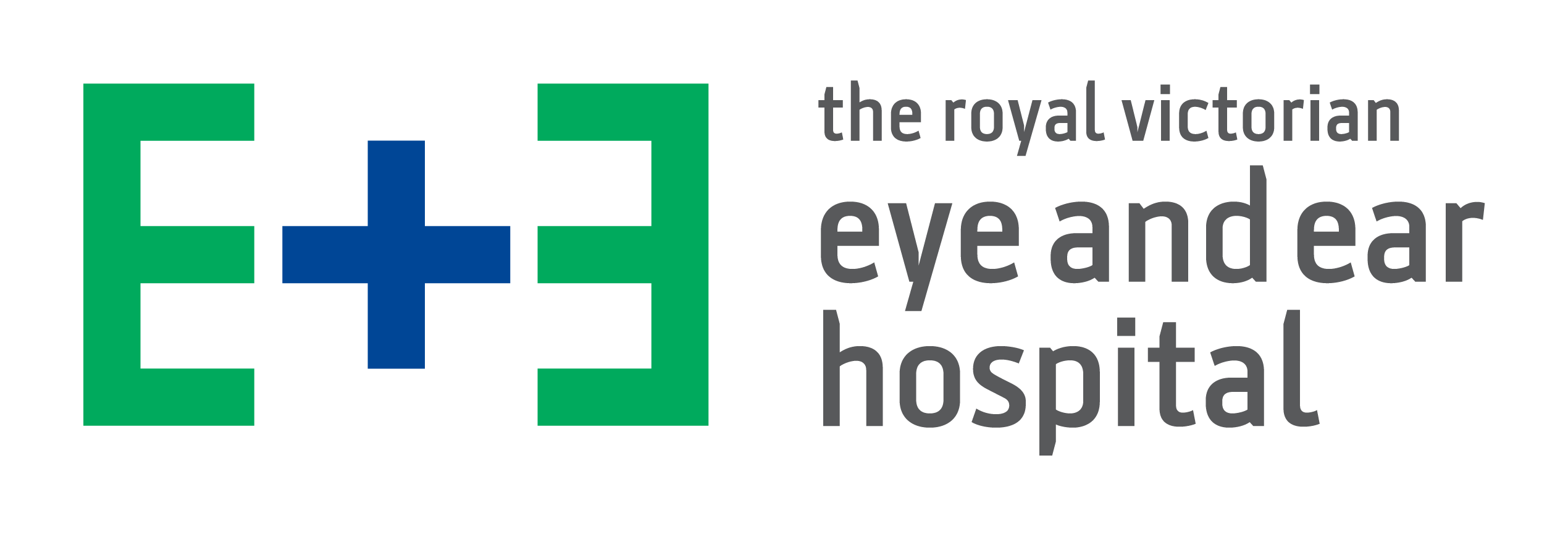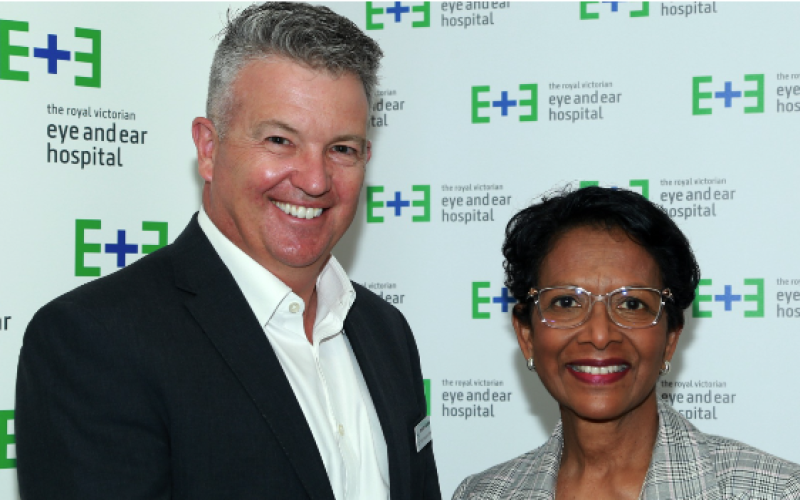On International Day of People with Disability, we aim to create awareness, understanding, and acceptance of the 4.4 million Australians living with a disability, and those worldwide.
The theme for this year is “Transformative solutions for inclusive development: the role of innovation in fuelling an accessible and equitable world”. In the spirit of the day, we thought we’d share with you details of how the Eye and Ear is helping to increase support and access to the hospital for patients with disabilities
Emma Loughnan is our Disability Liaison Officer (DLO), some of you may recognise her from her work in the hospital as a social worker.
Emma is passionate about increasing access to support for patients with disabilities and thoroughly enjoys her role as DLO due to the increased level of involvement she has with patients.
We asked Emma some questions about her role and its benefits.
What made you decide to be the Disability Liaison Officer (DLO)?
I have previously been working at Eye and Ear for 18 months as a Social Worker. Moving into the DLO role was an easy decision for me. I have a background as a Disability Support Worker and have worked for many years in the homes and lives of people with disability. I fell in love with helping patients and their carers, adding value to their lives, and providing enough support to them so that they could focus on enjoying their relationships, achieving their goals, and living a fantastic life. I not only saw the intricacies and complexities of my patient’s disabilities and how it could impact everyday tasks, but I also saw how incredibly strong and driven my clients and their carers were at addressing the barriers they faced; if they had the right supports they thrived, and I loved being there to see that.
What does a Disability liaison officer do?
Originally DLO’s were implemented across the hospital network during COVID-19 to assist people with disabilities to access healthcare This was important, given this cohort of the community faced additional barriers around lack of service provision at the time, increased isolation and anxiety, as well as increased risk of vulnerability to infection. More recently, the DLO’s role has focused on a holistic model of care, and being the link with our hospital that can provide equitable adjustments and reduce the barriers for a patient to feel comfortable and supported whilst engaging in their healthcare journey.
For some patients with a disability and complex needs, in particular requiring surgery, the DLO will undertake an assessment to clarify the needs and circumstances of the patient which includes liaising with the patient’s support service and carers/family. Following this assessment, the DLO will liaise with Eye and Ear medical/nursing staff to help support the best management for the patient or determine if the patient’s needs would be better addressed at another public hospital. If that were the case, the DLO would then liaise with the other public hospital to ensure a smooth and efficient referral to that health service.
What are the benefits?
There are often physical and organisational barriers that prevent people with disabilities from accessing timely and effective health care. My role is to help patients feel comfortable, in control, and engaged in their treatment. I provide resources for the patient to engage with external supports. This includes liaison and coordination of available support within the hospital. Our goal is to ensure the patient’s needs are met while they are here. I assess what the patient’s individual needs are, how to best manage those needs, who is required to be involved in the healthcare journey to support them, what the Clinicians engaging with the patient need to do. If surgery is required we consider how best to discharge the patient safely so that they recover well. Although the DLO role is similar to that of a Social Worker, I have the capacity to be far more involved with a patient beyond referral-based assessments. I can be an ongoing point of contact in order to achieve a positive health outcome for that patient.
How does a patient access it?
If a Clinician the patient is working with identifies a patient who has a disability and could benefit from coordinated support, they can discuss with the patient whether a DLO referral would be beneficial to them before referring. A patient or carer can always self-refer by emailing or calling me.
What message would you give patients who are hesitant to get in touch?
If a patient or carer feels overwhelmed or unsure who to ask to get extra support on-site at the Eye and Ear, please get in touch. I am more than happy to discuss individual circumstances and think outside of the box to formulate a solution. Whether it is big or small, if it’s causing hesitation, I’m here to assist.
If you would like to get in touch with Emma to talk further about extra support, you can email her at DisabilityLiaison@eyeandear.org.au or call her on 9929 8638.


